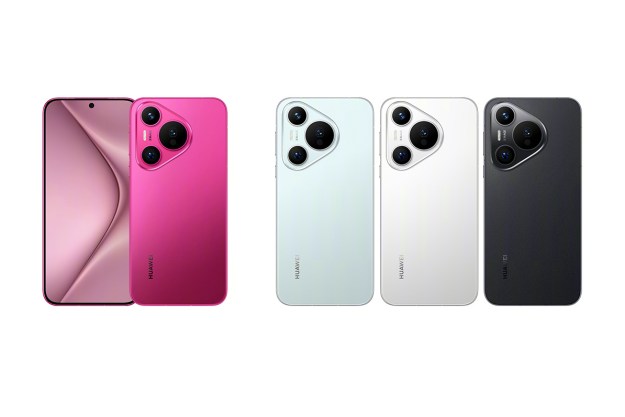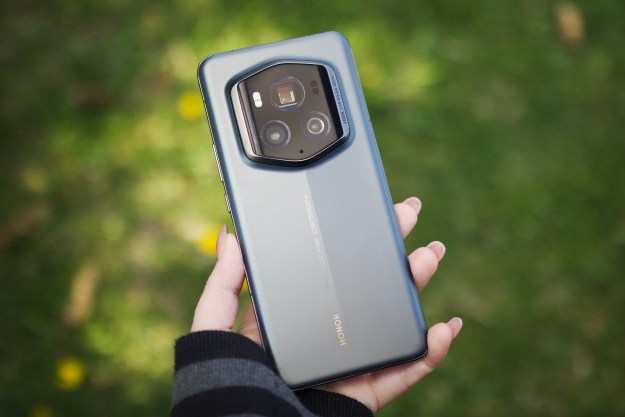
A federal judge ruled Monday that the National Security Agency’s bulk collection of phone call data in the US is likely unconstitutional – and that’s a big deal. The decision is being heralded by privacy advocates as a “historic” first step in a long, long staircase that could potentially end with a Supreme Court ruling against the NSA’s dragnet collection of all Americans’ phone call records. But, of course, it’s a lot more complicated than that. Here are the key facts every American needs to know.
1. The NSA’s phone data collection won’t stop – at least not yet
Judge Richard Leon of the US district court for the District of Columbia found (pdf) that the plaintiffs in the lawsuit “demonstrated a substantial likelihood of success on the merits of their Fourth Amendment claim.” This basically means that Judge Leon believes there’s a good chance this case against the NSA’s practice of collecting so-called metadata – numbers called, call duration, call times, and more – violates the Constitution’s protection against unreasonable searches and seizures. Judge Leon also found that the plaintiffs “will suffer irreparable harm” if the NSA’s bulk phone data collection doesn’t stop. This estimation of harm ostensibly applies to every American – not just the plaintiffs in the case – since anyone who makes or receives a phone call in the US is said to have had his or her phone metadata sucked up by the NSA.
“I cannot imagine a more ‘indiscriminate’ and ‘arbitrary’ invasion than this systematic and high-tech collection and retention of personal data on virtually every single citizen for purposes of querying and analyzing it without prior judicial approval,” Judge Leon wrote. “Surely, such a program infringes on ‘that degree of privacy’ that the founders enshrined in the Fourth Amendment.”
Despite his strong language, Judge Leon also decided that, due to the “significant national security interests at stake” and the unique nature of the case, he has put his order to stop the NSA surveillance program on hold until the government can file an appeal.
2. The NSA cannot prove that mass phone data collection has stopped any terrorist attacks
In addition to finding that the NSA’s phone metadata collection is harmful to Americans and likely unconstitutional, Judge Leon also found zero evidence that it has proven crucial in stopping even a single terrorist attack.
“Given the limited record before me at this point in the litigation – most notably, the utter lack of evidence that a terrorist attack has ever been prevented because searching the NSA database was faster than other investigative tactics – I have serious doubts about the efficacy of the metadata collection program as a means of conducting time-sensitive investigations in cases involving imminent threats of terrorism,” he wrote.
Under this reasoning, Americas’ constitutional right to privacy outweighs the government’s interest “in collecting and analyzing bulk telephony metadata” – so it should stop.
3. Technology may render the US government’s legal justification for NSA phone data collection irrelevant
The Obama administration maintains that the secret Foreign Intelligence Surveillance Court (FISC) has found that dragnet phone metadata collection is constitutional. This status is heavily based on a 1979 Supreme Court decision, Smith v. Maryland, which found that police could collect a few days’ worth of suspects’ phone metadata without a warrant because the telephone company – a third party – also had access to that data, meaning there was no expectation of privacy on the suspects’ part.
Judge Leon blasted this justification, writing that the “almost-Orwellian technology that enables the government to store and analyze the phone metadata of every telephone user in the United States is unlike anything that could have been conceived in 1979.” And, because the Smith ruling involved “highly-limited data collection” whereas the NSA’s surveillance program involves at least five years’ worth of data from many more phones, the ruling cannot be used to justify the latter practice.
“Admittedly, what metadata is has not changed over time. As in Smith, the types of information at issue in this case are relatively limited: phone numbers dialed, date, time, and the like,” wrote Judge Leon. “But the ubiquity of phones has dramatically altered the quantity of the information that is now available, and more importantly, what that information can tell the Government about people’s lives.”
Read more about the NSA’s Big Data technologies here.
4. The plaintiffs in the case aren’t your average citizens
The case at hand was brought forth by two Verzion customers: Larry Klayman and Charles Strange. But unlike many of us, this pair may be uniquely suited – or, perhaps, ill-suited – to challenge the constitutionality of the NSA’s phone metadata collection.
Klayman is a conservative activist lawyer with a long history of challenging the federal government. In the 1990s, he filed multiple lawsuits agains the Clinton administration over various allegations of professional and personal “transgressions,” reports The New York Times. He also took former Vice President Dick Cheney to task over secretive energy meetings. And he unsuccessfully challenged President Barack Obama’s placement on Florida’s primary ballot due to allegations that the Commander in Chief is not a natural-born US citizen.
Charles Strange, meanwhile, is the father of the late Michael Strange, a cryptologist who worked for the NSA and provided support to the Navy SEAL Team 6 that killed Osama bin Laden. Michael was killed in August 2011 after a helicopter he was riding in was shot down by Taliban forces.
Klayman also represents the Strange family and other families of US military personnel who died in the crash in a case against Vice President Biden and Secretary of Defense Leon Panetta, who the plaintiffs claim are responsible for their sons’ deaths for disclosing the soldiers’ identities.
5. Snowden sees Judge Leon’s decision as victory
Edward Snowden, the former NSA analyst whose leak of classified agency documents made public the agency’s mass phone metadata collection, made a rare public statement following Judge Leon’s decision, and heralded it as justification for his actions.
“I acted on my belief that the NSA’s mass surveillance programs would not withstand a constitutional challenge, and that the American public deserved a chance to see these issues determined by open courts,” Snowden said in a statement distributed by journalist Glenn Greenwald, to whom Snowden first provided the NSA documents. “Today, a secret program authorized by a secret court was, when exposed to the light of day, found to violate Americans’ rights. It is the first of many.”
Read Judge Leon’s full 68-page ruling below:
Klayman v. Obama: NSA mass phone metadata collection ruled likely unconstitutional
Editors' Recommendations
- Buying an iPad Mini today? You need to know about this deal
- iOS 16: Everything you need to know about 2022’s big iPhone update
- 7 true wireless earbuds deals you need to know about today
- Sony Xperia 5: Everything you need to know about Sony’s smaller flagship phone


